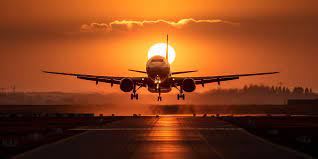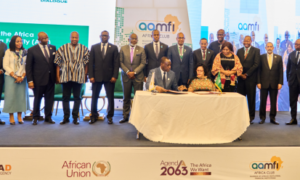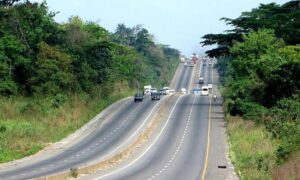The Chief Executive Officer of West Link Airlines, a charter operator, Capt. Ibrahim Mshelia has described civil aviation regulations in Nigeria as great moves but limiting the growth of the airline sub-sector.
Mshelia also said that the Federal Government through its multiple charges was responsible for the early deaths of the Nigerian airlines.
Speaking in Lagos during the week, Mshelia said that the regulations were discouraging and contributed to the collapse of some of the indigenous airlines.
According to him, the airlines are overburdened with charges, thereby limiting their potential for growth and expansion.
Mshelia explained that some of the unnecessary charges are passed over to the flying public, which makes air tickets expensive and reduces traffic for the airlines, while others are borne bthe airlines.
He said: “So, the regulation has been a great move, but it has been retrogressive for us as operators. It is very discouraging and they blame the airlines for not surviving. It is the government that is killing the airlines.
“There are so many experts in the industry; there are more experts than listeners in the industry. Apparently, people who find themselves in positions of authority in the industry tend to either forget their background or listen to this advice. There are too many cooks; you cannot continue to overcharge or stagnant them.
“The Nigerian College of Aviation Technology (NCAT) is a service provider, owned by the government. The government has decided to maintain and keep NCAT. Why are you charging the operators to maintain NCAT? Everything you charge an operator for, adds to the ticket of the passenger or it adds up to the passenger and the man not being able to charge the appropriate fare because the people won’t fly.
“If I sell a ticket at $500 to Lagos, who will fly $500 from Abuja to Lagos? The passenger load will drop drastically. Therefore, it is only better to make it affordable. Instead of the government withdrawing their demands from the private people and allowing them to function within the economics of their own business, they overloaded demands on the sector. That is the only thing.”
Last month, the International Air Transportation Association (IATA) rated the Lagos and Abuja airports in Nigeria as the most expensive to operate in terms of levy and tax charges in the world.
In his presentation in Abuja, Mr. Kamil Al Alwadi, the Vice President of IATA, Africa and Middle East, said that Nigerian airports charge foreign airlines about 27 levies, making it the most expensive in the world and discouraging airlines from flying into the country.
Alwadi criticized the Nigerian government for stiffing airline operations with heavy and sundry levies and taxes.
He lamented the stunted growth in the region, especially Nigeria, calling on the Nigerian government to create a conducive environment for airlines to operate and thrive.
“In recent research conducted it was discovered that the most expensive airport in Africa is Abuja airport, followed by Lagos airport. With all these exorbitant charges, Nigerian airlines can’t compete with their foreign counterparts.
“Africa has put itself in a place where it cannot help its own, expensive fuel, excessive charges, leasing and insurance through the roof, the airlines need to be financially viable too. The airlines contribute to the country’s GDP, but Nigeria needs to decide what to do for them to survive”, he said













